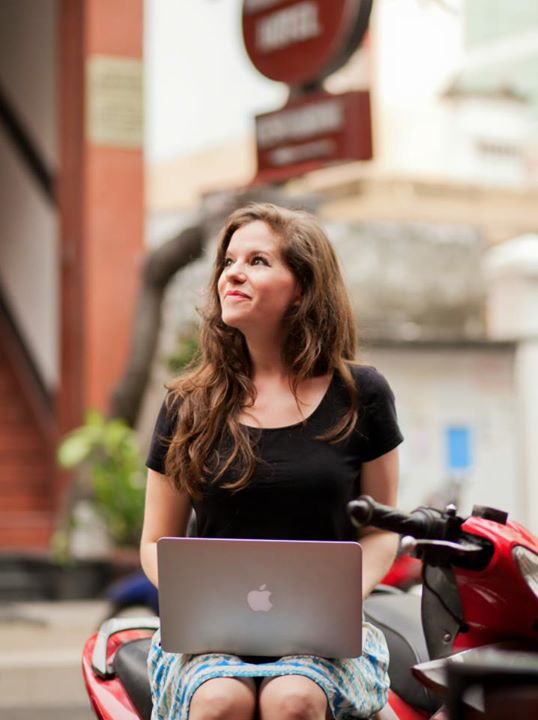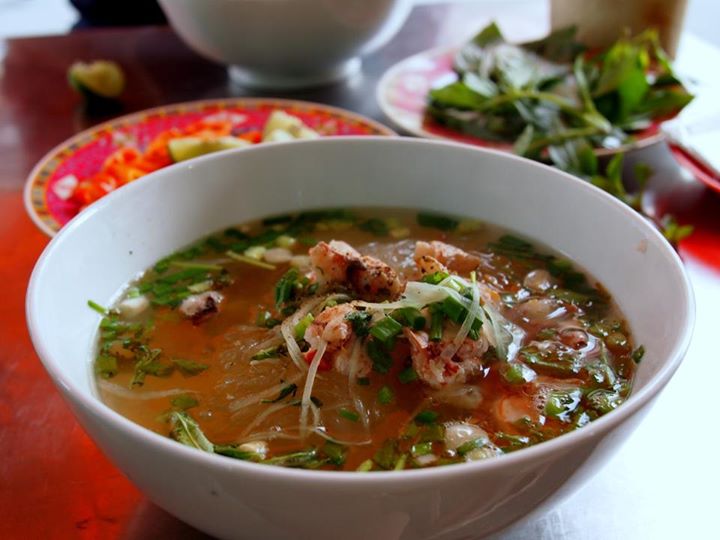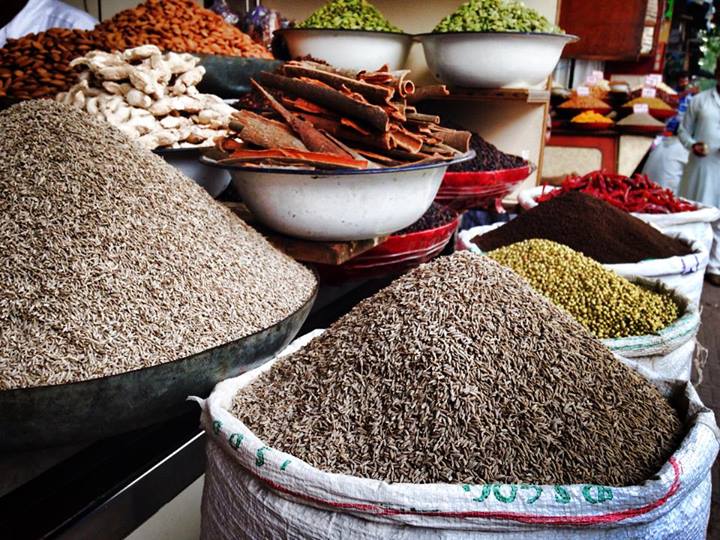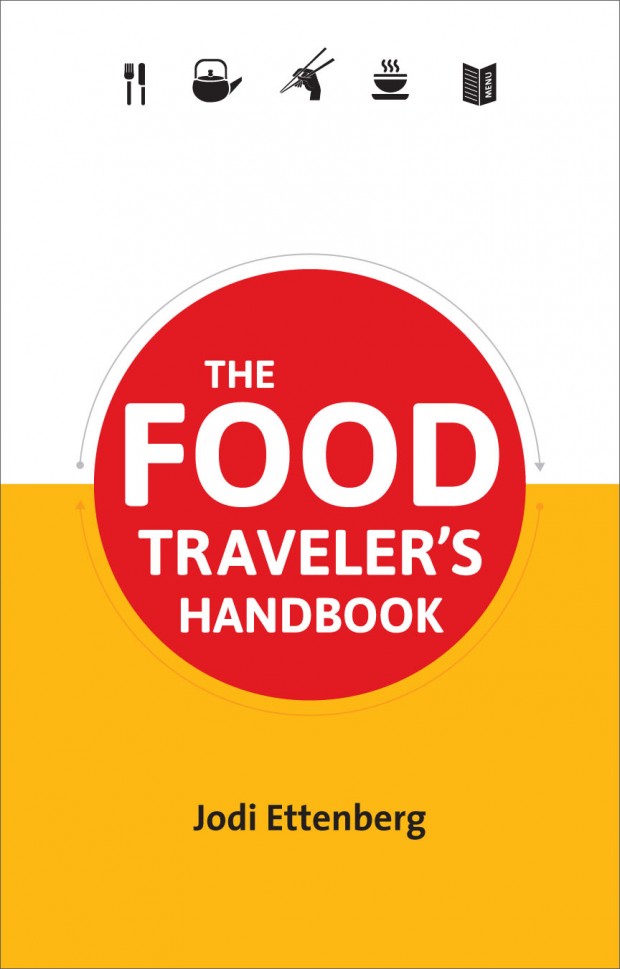Jodi from LegalNomads.com is one of those people whose travel sites I had been following for a very long time, but I had yet to meet. She usually lives in Asia for half of the year, so when the opportunity came to see her at TBEX Toronto, I was very pleased. Our first talk was brief; better said, our quick hello and her warm hug. With 1,300 people attending the North American TBEX this year, it was close to impossible to have a conversation longer than a few minutes with anyone.
We met again in New York City at the Restless Legs series, hosted by David Farley, where she read excerpts from her book, followed by her talk at the Apple Store in Meatpacking District. Although I haven’t known her for long, I feel as if I do. The petite Canadian with beautiful long lashes wowed me with her travel stories throughout Asia, tips on fitting in as a woman in conservative cultures and above all, tips on eating safely abroad. Having been diagnosed with Celiac disease many years ago hasn’t stopped her from having fun with food, it has only determined her to eat safely and teach others in similar situations how to do so as well.
It might seem we don’t have a lot in common – she’s a Canadian former lawyer – and I’m a Romanian journalist that somehow got lost in New York City – however, apart from our mutual love for travel, culture and ironically suffering from the same constant restlessness, there is an additional common ground. Soup. She’s a soup expert and I love soup. I grew up in Eastern Europe, where soup – in particular borscht – was a daily starter for our family meals. My grandmother’s excellent cooking included soup as a must on a daily basis. At the time, I wasn’t very fond of it, nor the vegetables I would surely push to the side.
As I grew up and moved to the United States, soup became my comfort food, the one dish that took me back to my grandmother’s kitchen. To reconnect with those tastes and memories from home, I learnt to cook soup (through a long trial and error, of course) round about 21-22 years old. Now, whenever I cook, it’s mostly to make soup; similarly, whenever I order in, 80% of the time, it’s also for soup. In recent years, I became obsessed with Asian soups: Japanese udon soups, ramen, Chinese noodle soups, Vietnamese pho, Thai thom yum, Korean spicy soups and so on. After my month-long trip to China, my obsession with soup grew even further. And this is where Jodi comes in …
***
Monica Suma: How does a former lawyer become a recognized travel writer and soup expert living in Southeast Asia?
Jodi Ettenberg: Ha, a very fair question. The soup expert moniker is actually fairly recent. I wrote about soups in Myanmar back when I visited in late early 2010, but it never figured prominently on my blog. When I finally made it to Vietnam for the first time last fall, I quickly realized that the phos I was used to were just the tip of a very complex and tasty iceberg; I was all about the soup in Saigon. I suppose it’s a testament to my readers and their passion for food too; they send me photos of soup from around the world, and my excitement about soup seems to have stirred something in them, too. When I write about something else, inevitably I get a comment or quick email saying “but Jodi – you will return to writing about soup soon, right?”
I’m still admitted as a lawyer, and if things don’t work out, legal work is an option in some capacity. I’m enjoying the ride, however, so I’ll stick with this for the time being.
Do you find the skills you learnt as a practicing lawyer useful when traveling?
I think they are useful while traveling and while building a business. In travel, the training to observe and record everything internally for use later has come in handy. While great for negotiating in a law firm context, it’s also helpful for connecting disparate stories and threads from years of moving around. Having come from years of working in corporate law, I’ve found it really helpful too in dealing with my own contracts, be it publishing, freelance work or other grants of rights.
Law school teaches you a new way to think, and going to McGill meant that the legal education comprised not just the letter of the law but the philosophy behind it. We learned about civil law property, but first we examined the right of ownership – Locke, and Aquinas and more. I’m grateful for such well-rounded education, and it is certainly something that I fall back on more often than I expected.
What is it about soup that you love so much?
Well as you say, it is delicious. And it is a concept, like saying “I like poetry.” Almost anything can be turned into a soup, but to me it symbolizes communal eating, comfort in warmth and springy noodles, deconstruction of the tastes in a complicated broth, and the fact that even the simple foods have stories of their own.
When I say, “I eat soup for a living”, though, it is more than just the act of eating something delicious. While a broad stroke, it symbolizes a whole slew of things and choices I’ve made. The decision to lean into the uncertainty of a freelance writing/speaking career despite not knowing where it would lead. My choice to stick to my own principles when building out the site, even though I knew I could make more money if I took ads or text links. When I say it, I smile – because in one short sentence it summarizes this long list of active choices that got me here today.
If there was only one dish (soup) you would be allowed to eat for the rest of your life, what would it be?
Hard to say! There are so many out there that resonate, depending on my mood. If I could pick one per meal I would say beef pho for breakfast, rich and creamy chicken laksa for lunch and then bun rieu for dinner.
Favorite place to have soup in NYC?
Unfortunately, I’ve found the Vietnamese soups in NY lacking. I used to get my laksa at Penang, though I’m not sure if it is still open. Many of the soup joints in Flushing’s Chinatown are well worth the trip out there, and if not you can stop in at Xi’An’s famous foods in the East Village instead for spicy beef noodle soup. Ippudo’s ramens are great (though I can no longer eat them as the days of pretending I don’t have celiac disease are long over – my body has doubled down on rejecting gluten).
Soups without spices are like desserts without sugar. How long did it take you to master the art of using spices and what are your favorites?
I certainly don’t think I’ve mastered the art of spicing – always more to learn! I started really thinking about spices when I lived in the South of France. It was just after my diagnosis of celiac disease and I was so disheartened; I thought I would be eating cardboard for the rest of my life. This was well before the current trend of wheat avoidance AND I was living in France but unable to eat bread. Torture.
One day at the market I met a man who sold spices and he would tell me how they were used and combined. Mix coriander and cumin, he would say. Add grains of paradise to dish x; add this curry blend to dish y. It was a whole new world for me, and it cheered me up considerably. I realized that even the most “boring” foods could be made interesting, and I’ve never looked back since.
I love the way you tell the story of a dish through its history and cultural component. Which culture most inspires you through its food/soup?
Again, almost all of them. You can always find a story in the simple things, or in nearby places, and you don’t need to look far to get inspired about a particular taste or food. I once had an impassioned discussion about adjika with my shuttle driver on the way to Denver’s airport from Keystone. Never would I think an hour would be spent in Colorado talking about how Georgian adjika differs from other versions (and how his mother’s recipe was, of course, the best of them all). From there we went into a history of family migration and traditions and how they keep them alive in the USA.
One can never run out of stories about food as a tool for learning because so many places and families and traditions are inexorably linked through the act of eating. Be it the geopolitics of Southeast Asia or the long histories of food in Middle Eastern countries, everything can be framed in terms of personal connection, which makes it even more fascinating to discover.
Best advice for people suffering from Celiac disease, looking to travel as yourself?
I often recommend printing out allergy cards from sites like Allergy Translation or Select Wisely to bring with you – very good peace of mind. Always carry snacks. And potentially your own chopsticks too, in case of communal serving where you cannot share the dish.
Are you ever tempted to go back to your former life as a lawyer?
Not yet!
I’ve saved the best for last 🙂 When can I visit and come on one of your future food tours?
I’ll be starting them up at the beginning of January in Saigon, and information will be housed on a second site. Until the site is ready, you can sign up to receive updates about the first tours here.
***
You can buy Jodi’s The Food Traveler’s Handbook, to dive deeper in her food explorations as a perpetual traveler. She also examines the historical & cultural aspects behind the foods she encounters, which frankly, I cannot get enough of.




